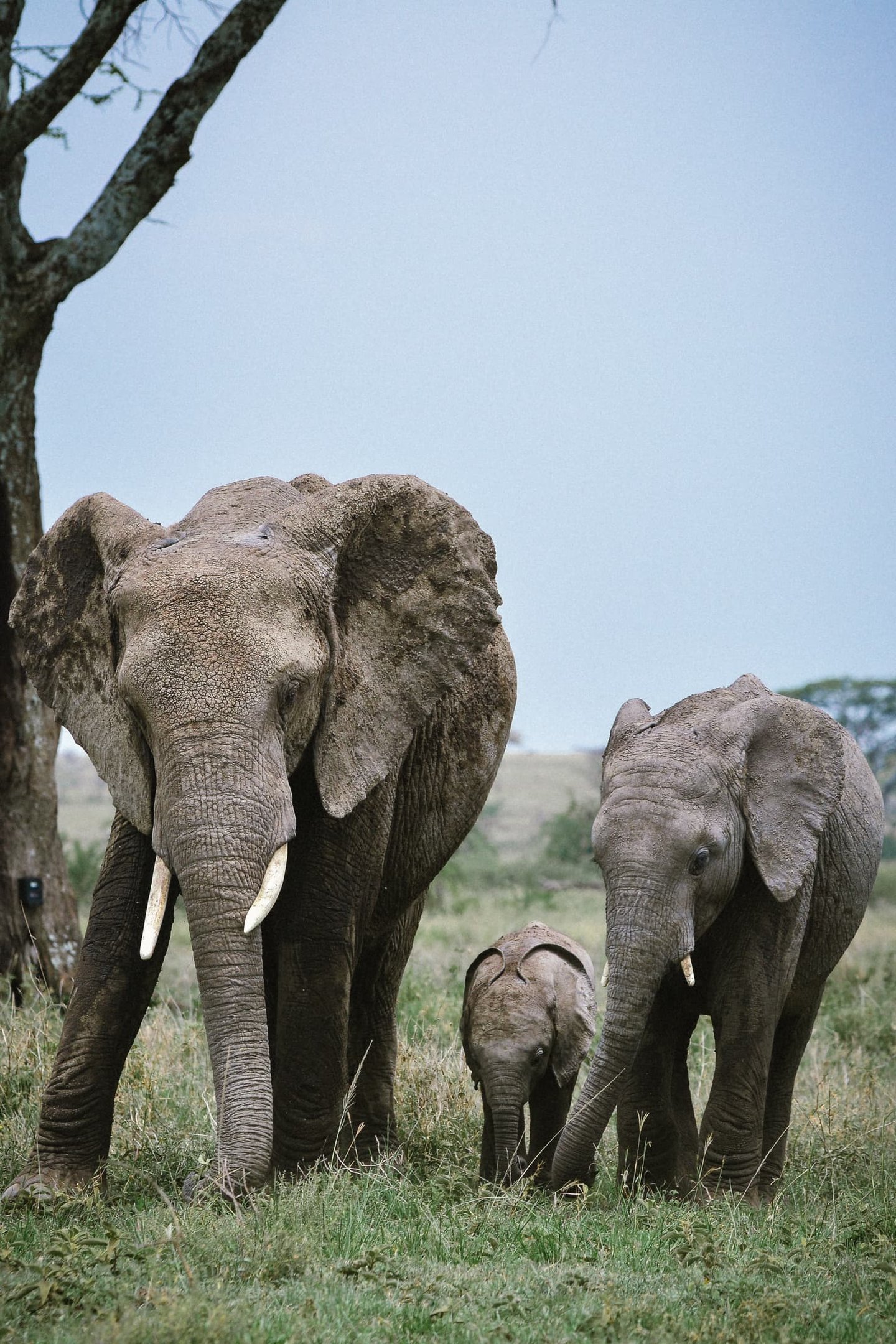
🐘 Tanzanian Elephants
Amazing fact about Tanzanian Elephants.
TRUSTY SAFARIS & ADVENTURES
2 min read


INTELLIGENCE
Problem-Solving:
Elephants have been observed using tools, such as branches to swat flies or large rocks to break open water pipes during the dry season. In some cases, they even cover watering holes with sand to prevent water from evaporating too quickly.
Self-Awareness:
Elephants are one of the few animals that can recognize themselves in a mirror, a key sign of advanced cognition. This ability is shared with only a handful of species, including humans.
Empathy & Emotional Bonds:
If an elephant calf is in distress, the entire herd will come together to protect and comfort it. There are documented cases of elephants mourning their dead, gently touching the bones of lost family members, and even standing vigil over fallen companions for hours or days.
Communication & Memory:
Elephants can remember water sources from decades ago and pass this knowledge down through generations. Matriarchs lead their herds with wisdom gained over years of experience, guiding them through changing seasons and unpredictable landscapes.
Playfulness & Joy:
Young elephants love to play, often seen chasing birds, rolling in mud, or play-fighting with their siblings. Some even use their trunks to toss objects like sticks, showcasing their curiosity and problem-solving skills.
DUTIES PERFORMED
Creating Open Grasslands for Grazers
Elephants have an ability to clear dense vegetation, knocking down small trees and shrubs as they move through the landscape. This mechanism actually prevents bush encroachment, allowing grasses to flourish on which is vital for grazers like wildebeest, zebras, and gazelles. Without elephants, Most of Tanzanian National parks like Serengeti could become overgrown, making it harder for these species to find food.
During the dry season, elephants use their powerful trunks and tusks to dig into dry riverbeds, reaching underground water sources. These newly formed waterholes provide drinking water for countless animals, from buffalo and antelope to birds and smaller mammals. Even predators like lions and leopards benefit, as the presence of water attracts prey to one location.
Elephants are key seed dispersers in the Serengeti. They consume a variety of fruits, seeds, and vegetation, and their digestive system helps break down tough seed coatings, allowing them to germinate more easily. As elephants roam vast distances, they spread these seeds through their dung, promoting forest regeneration and ensuring biodiversity across the region.
Balancing Predator-Prey Dynamics
By maintaining open landscapes and water sources, elephants indirectly influence predator-prey relationships. Open areas make it easier for predators like lions and cheetahs to hunt, while ensuring herbivores have enough food to sustain their large populations. Their role in shaping the land ensures that no single species dominates, helping to maintain the natural balance of the Serengeti.

Travel DESTINATIONS
Culture
Tanzania Wilderness
+255-616-876-612
© 2026 All rights reserved.
Designed And Developed by : LAFS Network Solutions
Zanzibar Retreat
International Holidays
CAFE
Lake Eyasi
Maasai
Hadzabe
Hanang
Mount Kilimanjaro Trekking
DAY TRIPS & TOWN ACTIVITIES
Mt Meru Forest Reserve
Pugu Forrest Tourism
Materuni Waterfalls
Vikindu Forrest Tourism
COFFEE TOURS
info@trustyafrica.com
Join Our Team
Discover Unforgettable Adventures in African's Wilderness
